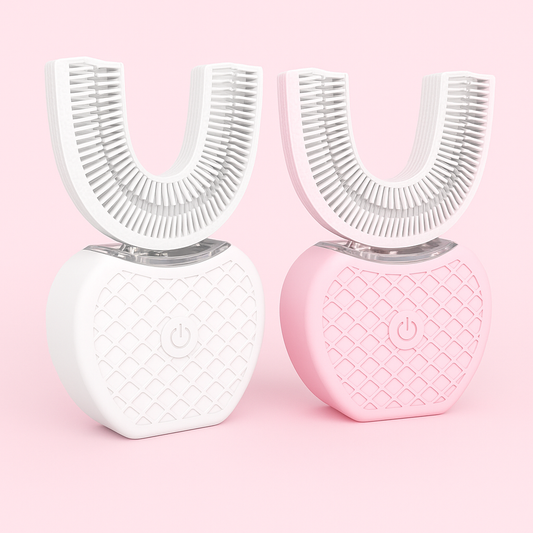Introduction
As we step into 2025, the importance of maintaining optimal dental health remains more critical than ever. One of the most vital components of dental health is the strength of your enamel—the thin, protective outer layer of your teeth. Enamel acts as a shield against decay, wear, and sensitivity. With the right strategies, you can strengthen your enamel and maintain a healthy, radiant smile. This article presents seven essential tips to help you achieve optimal dental health.
1. Use Fluoride Toothpaste
Fluoride is a naturally occurring mineral that plays a crucial role in strengthening tooth enamel. It works by remineralizing areas of enamel that have started to erode, making it more resistant to decay. To effectively use fluoride for your dental health:
- Choose the Right Toothpaste: Look for toothpaste that contains at least 1,000 ppm of fluoride. Many brands offer specialized formulas that cater to specific needs, such as sensitivity or whitening.
- Brush Properly: Make sure to brush your teeth twice a day, using a pea-sized amount of fluoride toothpaste. Brush gently in a circular motion to avoid damaging your gums while ensuring all surfaces of your teeth are cleaned.
- Follow Up with Mouthwash: Consider using a fluoride mouthwash after brushing to provide an additional layer of protection against enamel erosion.
2. Limit Sugary and Acidic Foods
Foods high in sugar and acid can be detrimental to your enamel. Sugar feeds the bacteria in your mouth, which produce acids that erode enamel. Acidic foods and drinks can also contribute to enamel wear. Here are some ways to manage your diet:
- Reduce Sugary Snacks: Limit your consumption of candies, pastries, and sugary beverages. Opt for healthier snacks like fruits, nuts, and yogurt.
- Avoid Acidic Beverages: Minimize your intake of sodas, fruit juices, and energy drinks. If you consume them, use a straw to reduce contact with your teeth.
- Rinse Your Mouth: After consuming sugary or acidic foods, rinse your mouth with water to help neutralize acids and wash away food particles.
3. Stay Hydrated
Hydration is essential for overall health, including dental health. Water helps wash away food particles and bacteria that can harm your enamel. Here are some tips to ensure you stay hydrated:
- Aim for Eight Glasses a Day: Drinking at least eight glasses of water daily can help keep your mouth clean and your enamel strong.
- Drink Water During Meals: Sipping water while eating can help wash down food and reduce the acidity in your mouth.
- Choose Water Over Sugary Drinks: Whenever possible, replace sugary beverages with water to protect your teeth.
4. Maintain Regular Dental Check-ups
Regular dental visits are crucial for maintaining your dental health. Your dentist can help identify early signs of enamel erosion and provide treatments to strengthen your teeth. Here’s how to make the most of your dental visits:
- Schedule Biannual Check-ups: Aim for dental check-ups every six months. Regular cleanings can remove plaque and tartar that contribute to enamel erosion.
- Discuss Your Concerns: Bring up any concerns about your enamel or dental health during your appointment. Your dentist can provide tailored advice and treatments.
- Consider Professional Treatments: Ask your dentist about professional fluoride treatments or sealants that can offer additional protection against decay.
5. Incorporate Calcium and Vitamin D
Calcium and vitamin D are essential nutrients for strong teeth and bones. They work together to support tooth structure and protect against decay. To ensure you’re getting enough:
- Eat Calcium-Rich Foods: Include dairy products like milk, cheese, and yogurt in your diet. If you’re lactose intolerant, consider fortified plant-based alternatives.
- Add Leafy Greens: Incorporate green leafy vegetables, such as kale and spinach, which are also rich in calcium.
- Get Sunlight for Vitamin D: Spend time outdoors to help your body produce vitamin D. You can also find it in fortified foods and fatty fish.
6. Consider Dental Sealants
Dental sealants are a protective coating applied to the chewing surfaces of back teeth, where cavities often occur. They can help shield enamel from decay. Here’s what to know about sealants:
- Who Should Get Sealants? Sealants are particularly beneficial for children and adolescents, but adults can benefit from them as well.
- How Sealants Work: Sealants create a barrier against plaque and food particles, making it easier to maintain oral hygiene.
- Consult Your Dentist: If you’re interested in sealants, discuss it with your dentist to determine if they are a good option for you.
7. Practice Good Oral Hygiene
Good oral hygiene is the foundation of enamel health. Establishing a routine can significantly impact your dental health. Follow these practices:
- Brush Twice a Day: Brush your teeth for at least two minutes, focusing on all surfaces. Use a soft-bristled toothbrush to avoid damaging your gums.
- Floss Daily: Flossing removes plaque and food particles between teeth where a toothbrush can’t reach. Make it a habit to floss before brushing.
- Use Antibacterial Mouthwash: Incorporate an antibacterial mouthwash into your routine to help reduce bacteria in your mouth and freshen your breath.
Conclusion
In conclusion, strengthening your enamel is vital for maintaining optimal dental health in 2025. By following these seven essential tips—using fluoride toothpaste, limiting sugary and acidic foods, staying hydrated, maintaining regular dental check-ups, incorporating calcium and vitamin D, considering dental sealants, and practicing good oral hygiene—you can protect your enamel and enjoy a healthy, beautiful smile. Remember, proactive care and regular monitoring are key to achieving long-lasting dental health. Start implementing these tips today and take charge of your dental well-being!


